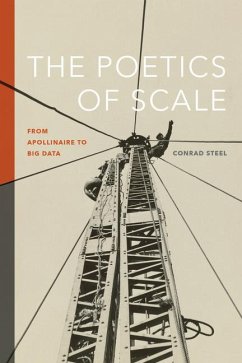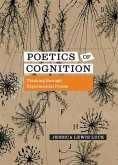"Big data, sensor networks, rolling newsfeeds: today we are constantly surrounded by communication technologies mapping and remapping the complexity of our interconnected planet. But one technology has been overlooked: the poem. This book tells the story of how, over the century, authors and readers reinvented poetry as a form of macro-scale imagination, able to capture the speed and scope of global capitalist society when all other media fall short. It also asks what that story tells us today: why have we been so keen to picture poetry as a kind of global information system (a picture I call 'epic reading')? What may have been lost? This story, it turns out, takes us back to the years just before the First World War, when new media and new horizons threatened to leave poetry behind--but also opened up a new space of imaginative possibilities that it turned out poetic technique was uniquely able to navigate. It also takes us back to turn-of-the century France, and more specifically to Paris (the 'capital of the nineteenth century') where the poet Guillaume Apollinaire articulated, more clearly than anyone, the challenges of imaginative scale that the coming twentieth century would bring. The book follows Apollinaire's ideas across the Atlantic, and shows how and why his work became a vital source of inspiration for American poets through the era of American imperialism and into the present day. Threading together Apollinaire's work in the 1910s with that of three of his American successors--Louis Zukofsky in the 1930s, Allen Ginsberg in the 1950s, and Alice Notley starting in the 1970s--it examines why this specific strand of poetic tradition and method has proved so vital to our cultural ideas, a hundred years later, of what poetry can do and of what one individual can imagine."--
Hinweis: Dieser Artikel kann nur an eine deutsche Lieferadresse ausgeliefert werden.
Hinweis: Dieser Artikel kann nur an eine deutsche Lieferadresse ausgeliefert werden.








